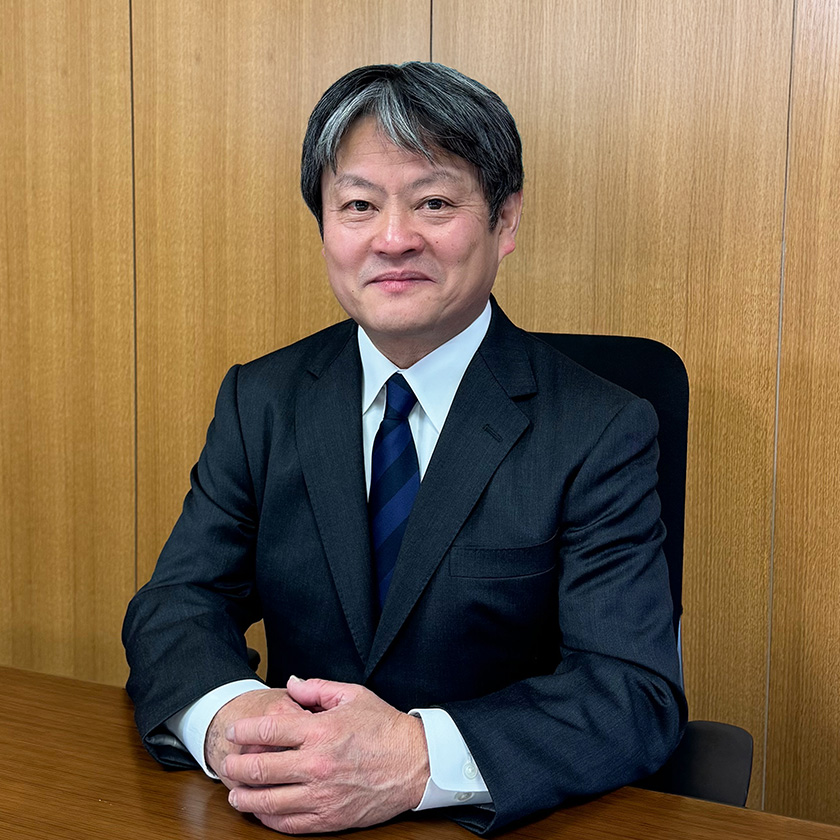Director’s Message

Research Institute for Microbial Diseases (RIMD), the first institute affiliated to Osaka University (now the University of Osaka), was established in 1934 to study microbial diseases. Since its foundation, RIMD has concentrated on basic research in microbiology, immunology, and oncology. It has made significant contributions to the control of infectious diseases by identifying new pathogens, elucidating the pathogenesis of microbes, and developing vaccines and diagnostics. In addition, RIMD has contributed significantly to the progress of life sciences by discovering oncogenes and cell fusion phenomena, as well as elucidating the innate immune system.
During the COVID-19 pandemic, we united our efforts to promote basic research for understanding the characteristics of the virus and the mechanisms of disease development; thus, creating therapeutic and preventive methods. Currently, we are further expanding our initiatives to overcome various infectious diseases by developing collaborative research and development with internal and external partners, including the Immunology Frontier Research Center (IFReC), Center for Infectious Disease Education and Research (CiDER), Center for Advanced Modalities and DDS (CAMaD), and the Research Foundation for Microbial Diseases of Osaka University (BIKEN Foundation).
Furthermore, we take pride in our various state-of-the-art common research facilities. These include the Central Instrumentation Laboratory, to operate the large-scale and high-priced research equipment; the Central Laboratory for Biological Hazardous Microbes, equipped with a Biosafety Level 3 (BSL3) facility for conducting the experimental study of biologically hazardous microbes; the Animal Resource Center for Infectious Diseases, responsible for the production of genetically modified mice; the Radioisotope Laboratory; and the Next-Generation Sequencing Core Facility, responsible for large-scale genome and omics analysis and bioinformatics. These resources are widely open to the research community, contributing to interdisciplinary and collaborative research and the advancement of various research fields. Our primary focus at the moment lies in the "Bioinformatics Integrated Research Platform," which centers around bioinformatics research utilizing extensive genomic and omics analysis to derive valuable insights from big data. The project aims to form an educational and research hub in the academic community and beyond. To achieve this goal, efforts are fully underway to strengthen and develop human resources and the research infrastructure in preparation for the completion of the Bioinformatics Research Center in 2025.
In addition, we highlight our ongoing core research center, the "Preemptive-medicine Cancer & Aging Research Core (PreMed).” The mission of the center is to fulfill the responsibility of gathering our achievements, knowledge, and research resources in microbiology, immunology, and oncology to implement research outcomes in society. Specifically, the center intends to launch "preventive medical care for cancer" through preemptive medication for a society where each member leads a meaningful and fulfilling life," backed by the extension of healthy life expectancy. This project has been adopted as part of the Osaka University "OU Master Plan Acceleration Project." The final goal of the project is to establish an academic research system that can respond to social mandates by forming a world-leading research center. This can be achieved by approaching the cancer development mechanism from the perspective of both cancer cells and the surrounding environment and solving social issues with outstanding research achievements.
RIMD is certified as a Joint Usage/Research Center by the Ministry of Education, Culture, Sports, Science and Technology Japan (MEXT). In addition to our collaborative research, we provide valuable opportunities for domestic and international researchers. These opportunities include access to the BSL3 laboratory, which opened in 2023, and to the pathogenic microorganisms collected and stored in the Pathogenic Microbes Repository Unit. Regarding student education, our faculty members accept numerous graduate students from domestic and international backgrounds as affiliated staff of the Graduate School of Medicine, Frontier Biosciences, Science, and Pharmaceutical Sciences at the University of Osaka for their contributions to developing human resources for the next generation.
RIMD will continue to dedicate its efforts to advance basic research in pathogenic microbiology, immunology, oncology, developmental biology, and cell biology. Additionally, RIMD will focus on developing young researchers in Japan and abroad who are highly motivated to independently explore and establish new scientific paradigms.
Director Tetsuya Iida







